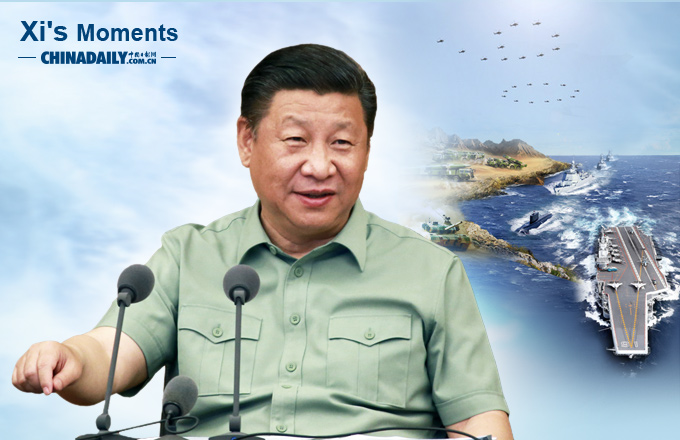Future climate leaders on board
The power of youth to take action on climate change took a step forward when the United Nations Development Programme launched its summer camp for climate action in Beijing on Thursday.
The camp aims to encourage young people to engage in tackling climate change and promote the development goals of the UN 2030 Agenda for Sustainable Development, which lists 17 measures to end all forms of poverty, fight inequality and ensure that no one is left behind.
The opening ceremony in Beijing brought together 50 young Chinese participants, aged from 13 to 17. Over nine days, they will spend their time at the Panda Solar Station in Datong, Shanxi province, and participate into a variety of interactive activities covering several sustainable development topics, building teamwork and cooperation skills through debates and practical workshops.
Business leaders from the renewable energy and technology sectors will also share their insights with the participants to give them a better and deeper understanding of clean energy.
"Climate change is a defining issue of our time," said Agi Veres, UNDP China country director, at the opening ceremony. "Through exciting initiatives like this summer camp, UNDP can empower youth to take leadership on climate action today so that, by the time they become leaders in the future, they can be the generation to tackle climate change."
She hoped that the young generation would not only be the beneficiaries of prosperity but also key collaborators for promoting sustainable development and driving the achievement of these goals.
Last year, UNDP began a partnership with Panda Green Energy Group, which operates the Panda Solar Station, to promote clean technology and enhance engagement with the next generation of young leaders to take action on climate change.
The station uses different kinds of silicon solar cells, in black and grayish white, to present an image of two baby pandas when seen from above. The first stage is operating with a capacity of 50 megawatts, meaning its average daily output could supply 120 average Chinese households with electricity for a year.
Li Yuan, CEO of the group, said the station is not just a clean energy project but more a global platform to support young pioneers to lead action against climate change through sustainable and green development.
- One-hand man gets teaching position after rejection by education authorities
- Five suspects connected to fugitive billionaire Guo plead guilty
- Two companies, ex-employee of billionaire Guo go on trial in Dalian
- At museum, foreign guests learn PLA history
- Lung cancer rising, but not from smoking



























